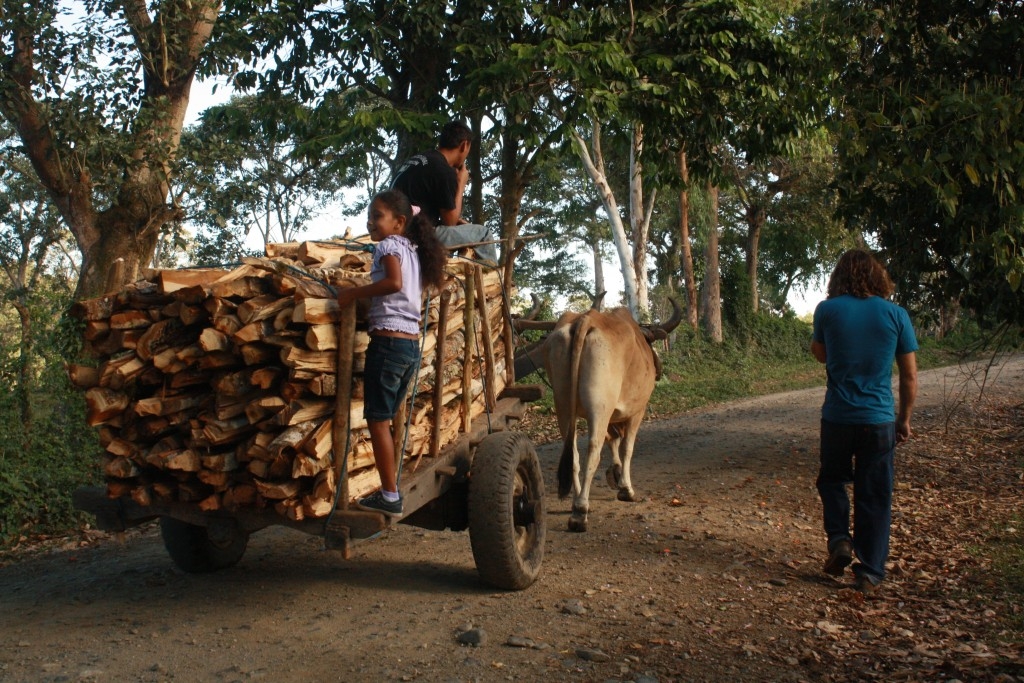By Micah Kloppenburg –

From 2009 to 2011, I served as a Peace Corps Agriculture Volunteer in northern Nicaragua. I lived in a small, idyllic village of 100 farming families at the foot of the climbing cerros called El Carbón. Here, I learned about and worked in the field of community food security. I thought everything I had done to become an aware, educated, and experienced individual had prepared me for this work as a Peace Corps Volunteer.
The following two years of service and their challenges and tribulations helped me understand the gap between individual preparation and what community work truly requires. My friends, my host-family–our community–helped me understand an important life-lesson in community work; that hubris is an individual quality best transformed into humility with learning and laughter. Though seemingly simple, this is a lesson that I believe is a critical step to becoming an engaged global citizen. And, as the UW-Madison Campus Peace Corps Recruiter in 2015, this was the underlying lesson I shared with students through stories, workshops, and presentations on what it means to grow from student to global citizen as a Peace Corps Volunteer.

The Writing Center isn’t the first place one would think to stop by when considering a life of excitement and adventure in the US Peace Corps (though staff and volunteers are certainly humble with their writing consultations). Between imagining yourself in far-off locales, simple living, and new friends and community, it’s easy to look beyond an important first step: the application! The Peace Corps’ UW-Madison office and the UW-Madison Writing Center have been working together for years to prepare our most daring students for a career in international community service. And we have the record to prove our success: UW-Madison has been one of the top three producing colleges of Peace Corps Volunteers for the last five years!
Two of the most critical pieces of the application process are the personal statement and resume. Both are difficult combinations of professionalism, reflection, and unique voice. What better resource than the Writing Center to lead the way on Peace Corps Application workshops?! Each year, our programs collaborate to offer several sections of a workshop designed specifically to help our students applying to the Peace Corps stand out among the 40,000+ applications. This is one of the dozens of different workshops that the UW-Madison Writing Center offers each semester, many in partnership with other programs on campus. In this workshop, we discuss the core Peace Corps values and the selection criteria and the instructions for the personal statement; we invite and discuss students’ questions; we share tips on what makes a top-line resume and personal statement; and we ask students to analyze successful samples written by former UW-Madison Peace Corps volunteers. During the workshops and in follow-up individual consultations, we work with students to ensure their inspiration to join the Peace Corps is clearly translated into print and understood (both literally and emotionally) by the reader.

I truly enjoyed co-teaching this workshop with the UW-Madison Writing Center and found our partnership to be unique in that we blend professional-preparation through personal expression. At the most basic level, like any good read (whether academic or other), our workshops focus on how to tell a good story: following an arc from context to climax to conclusion (for the more advanced, we include ways to mix up chronology and to build suspense). Our objective is to help students find their voice and, for those applicants who go on to become proud Peace Corps Volunteers, to have the confidence to continue their writing in journals and blogs abroad.
My time in the Peace Corps in Nicaragua learning Spanish connected me back to the basics of grammar, differences in dialects, and the subtleties of telling a good joke. The excitement of developing a new linguistic and literary persona is equally as novel as the new cuisine, and, after all, jokes and stories only become more humorous when told in another language entirely (more so over a good meal). Language is what separates us and draws us together; the Peace Corps and Writing Center are here to bridge that gap and help students take their education into a career of service–a story that deserves to be shared.


Micah, thanks for sharing your thoughts about how the Peace Corps and writing centers can be seen as working together within these challenges of language and humility!
As a Returned Peace Corps Volunteer (Kazakhstan 2007-2009) whose history with writing centers reaches back to tutoring at Purdue Northwest’s writing center as an undergrad, the Peace Corps and writing centers are institutions that have been very formative to my development. I learned about teaching through being a writing center tutor; I applied that interest as an English language educator in Kazakhstan. Both of these institutions have taught me about the value of listening, the importance of flexibility, what it looks like to pursue excellence for the sake of the person in front of you, and how much better life is if you can find things to enjoy in all contexts.
I believe that writing centers can assist students pursuing acceptance into the Peace Corps and that working as writing center tutors or fellows can encourage students towards being the kinds of people who thrive as Peace Corps volunteers.